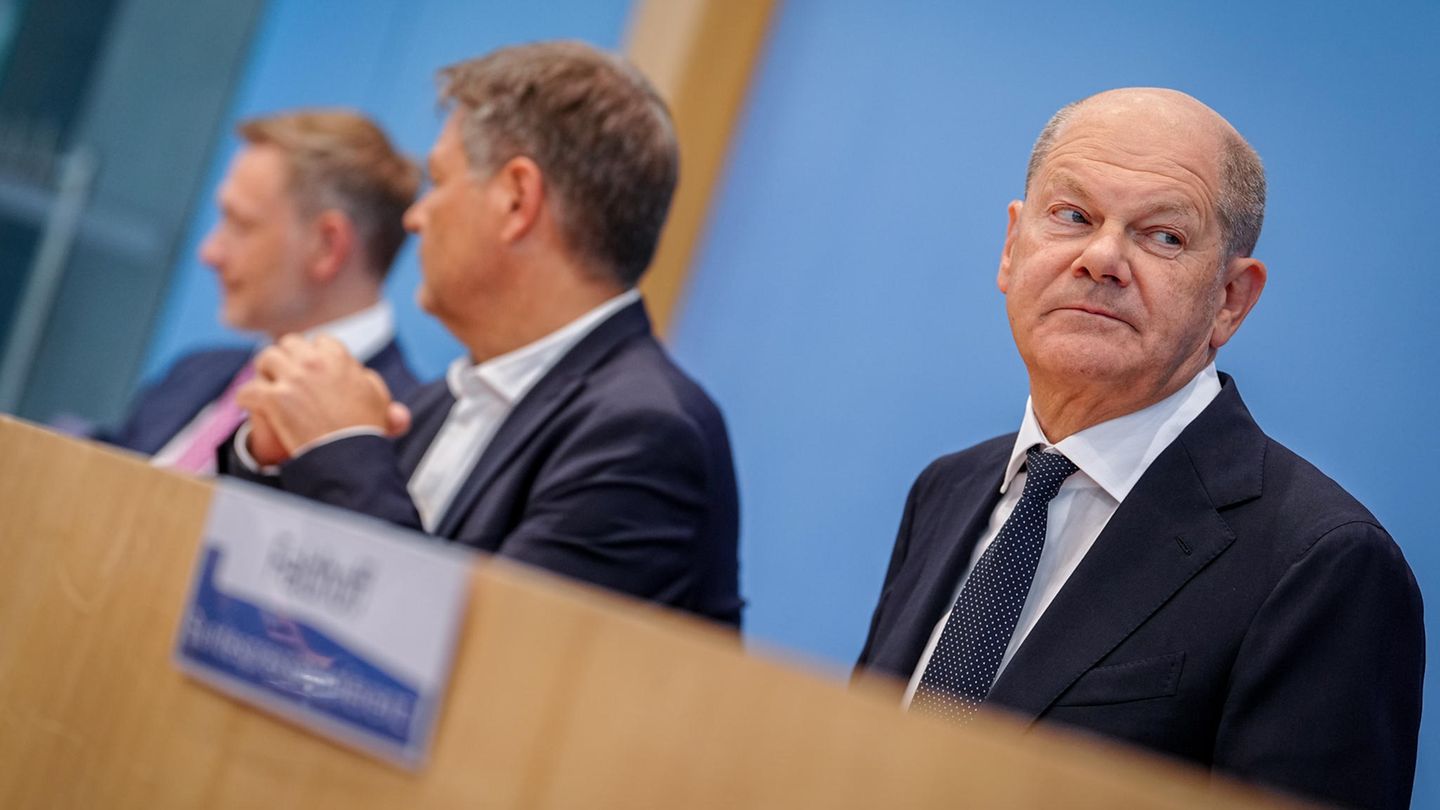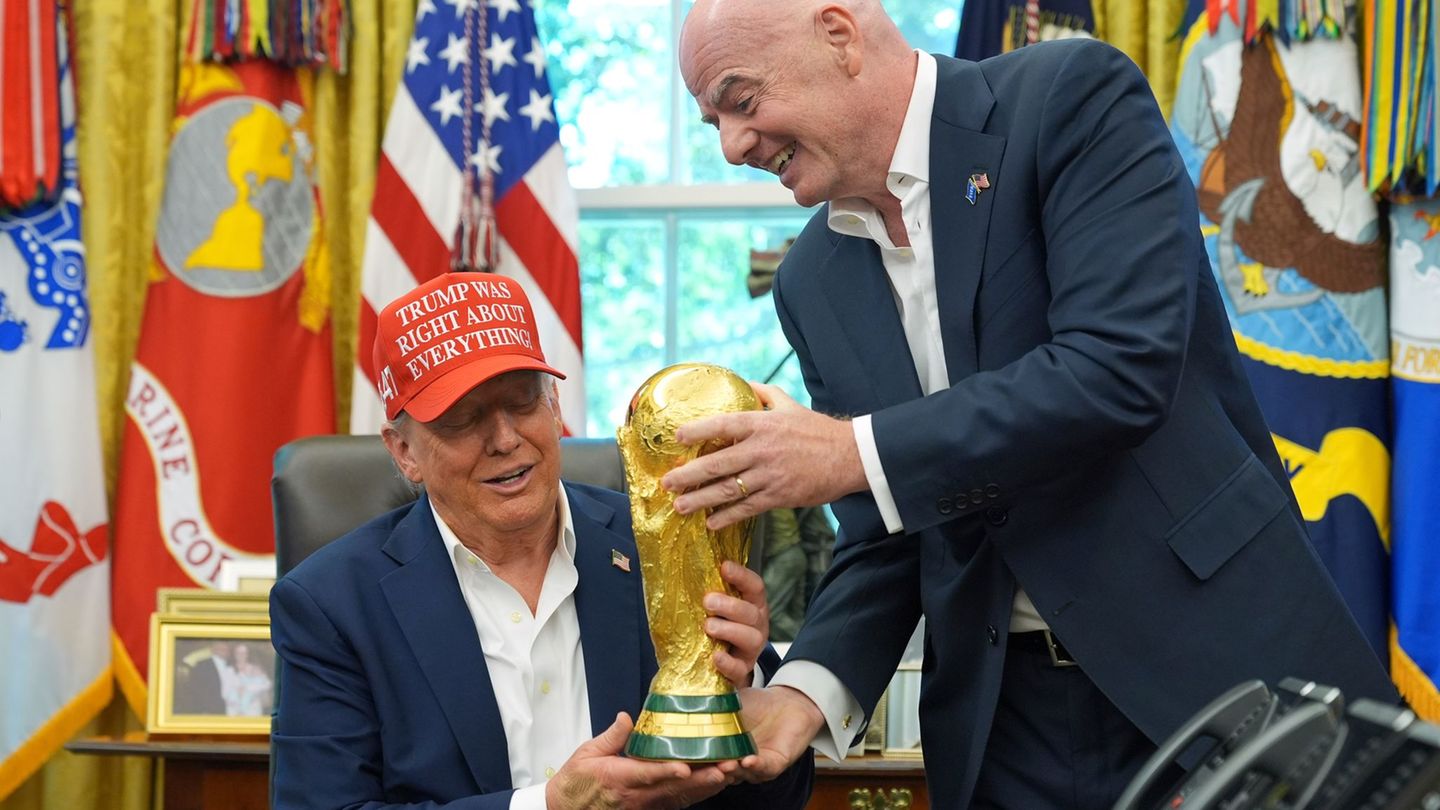Opinion
After the state elections, many are asking themselves: Would new elections at the federal level make everything better? Probably not. But if the traffic light coalition stays in place for much longer, it will not only harm itself.
Kevin Kühnert has perhaps the most thankless job in Germany: as SPD General Secretary, he has to explain the party’s election results. After the state elections in Saxony and Thuringia, however, the Social Democrats had to be happy to have just managed to get over the five percent hurdle in each case.
This meant that questions were raised not only about the Chancellor and the SPD, but also about the traffic light government in Berlin. ZDF presenter Bettina Schausten wanted to know from Kühnert how it would continue. The Secretary General could now have strengthened the coalition and talked about better cooperation. But he did not talk about what unites them, but rather about what his party would no longer accept from partners who had not even made it into parliament (the FDP ranked below the other parties with around one percent of the vote in both federal states). And that his SPD also needed to straighten up its posture and appear more self-confident.
Kühnert’s words sounded so strange that the presenter decided to listen further: Was that a declaration of rejection to the traffic light coalition? Kühnert assured him that no, of course not, otherwise he would have made television history.
But why not make history? The traffic light coalition is already making history as the most unpopular (and undisciplined) coalition of all time. The SPD has long been making history as the chancellor’s party that most consistently says goodbye to chancellor poll ratings.
And the traffic light could still write history in a special way: by showing insight and turning itself off.
After the state elections: Why the traffic light coalition can no longer be saved
Because this traffic light coalition can no longer be saved. Its leaders do not even dare to openly enter the next battle with it for fear of writing the chronicle of an impending doom. When Green Party leader Omid Nouripour spoke about the traffic light coalition on Sunday, he sounded like a eulogist. Many people are now afraid, he said. He meant people in Saxony and Thuringia who are worried about extremists. But many people in Germany are also afraid that the traffic light coalition will simply carry on as it is.
There are ways out, the party trio would not have to stay together. The SPD could replace its highly unpopular Chancellor Olaf Scholz with the highly popular Minister Boris Pistorius, so that there would be no new coalition, but a new Chancellor. But Scholz could also clear the way for new elections by asking the Bundestag for a vote of confidence and losing it (intentionally or actually). Would the Federal President then block new elections in the current situation? Rather unlikely.
Of course, none of this will happen. Olaf Scholz is so unwaveringly convinced of his suitability to be chancellor that even Joe Biden could have learned a lot from him. Unlike in the USA, however, no one in the SPD has dared to say what is obvious: that many Germans do not (or no longer) think Scholz is suitable. Scholz did not even win the last federal election; his rivals (Armin Laschet and Annalena Baerbock) lost it. Nevertheless, he and those around him are certain that they have a magic potion that will keep Scholz in the chancellorship in any case.
Historic loss of respect for the government
So what we will see instead is one last lost year of the traffic light coalition, which will lead to another historic loss of respect for this government. We will see a further fraying of our party system, which has remained surprisingly stable for a surprisingly long time compared to other European countries.
The rise of Sahra Wagenknecht’s BSW with its strange mixture of left and right populism shows that, like a horseshoe, the extremes of left and right are leaning towards each other, with the fringes clamping down on the middle. This is happening at a time when Germany is having to manage perhaps the greatest transformation of its energy policy, its business model and its role in global politics. Turning points everywhere, except in the traffic light coalition.
A Forsa survey commissioned by the star It has become clear how few Germans are convinced that things would be better under CDU/CSU leadership. In doing so, the citizens are demonstrating a good sense of the situation. In 16 years of government, the Union has created or ignored many of the problems that are now causing the traffic light coalition to fail. Friedrich Merz remains a moderately popular candidate for chancellor. CDU politicians like Jens Spahn are very quiet about their Corona failures, but in the migration debate they make such loud demands that they are only marginally distinguishable from populists.
Nevertheless, citizens know full well that they no longer want this traffic light system in this form. How much more clearly can they say this?
Source: Stern
I have been working in the news industry for over 6 years, first as a reporter and now as an editor. I have covered politics extensively, and my work has appeared in major newspapers and online news outlets around the world. In addition to my writing, I also contribute regularly to 24 Hours World.




